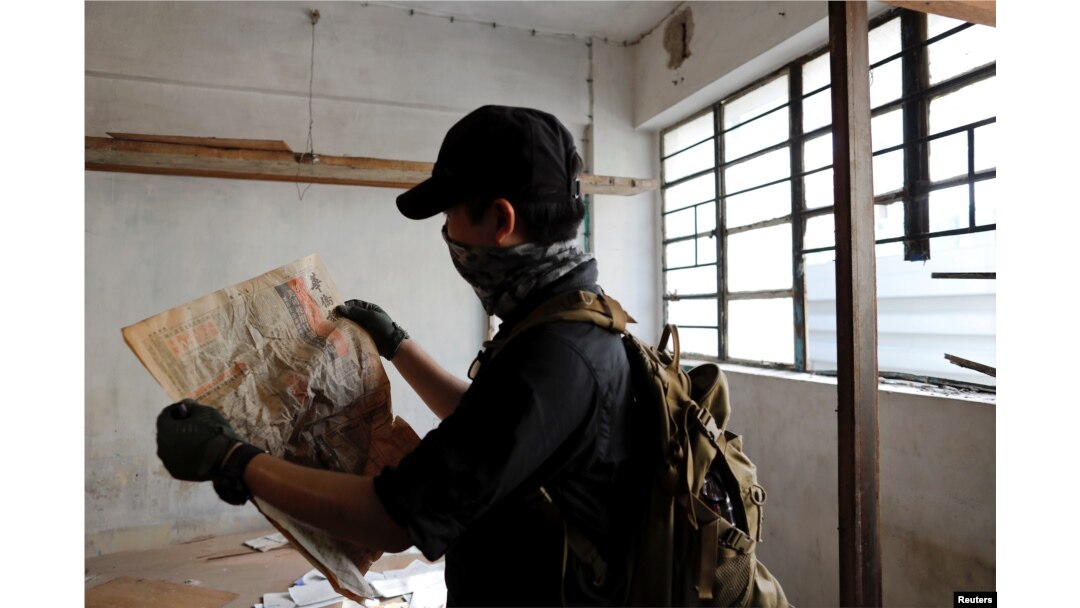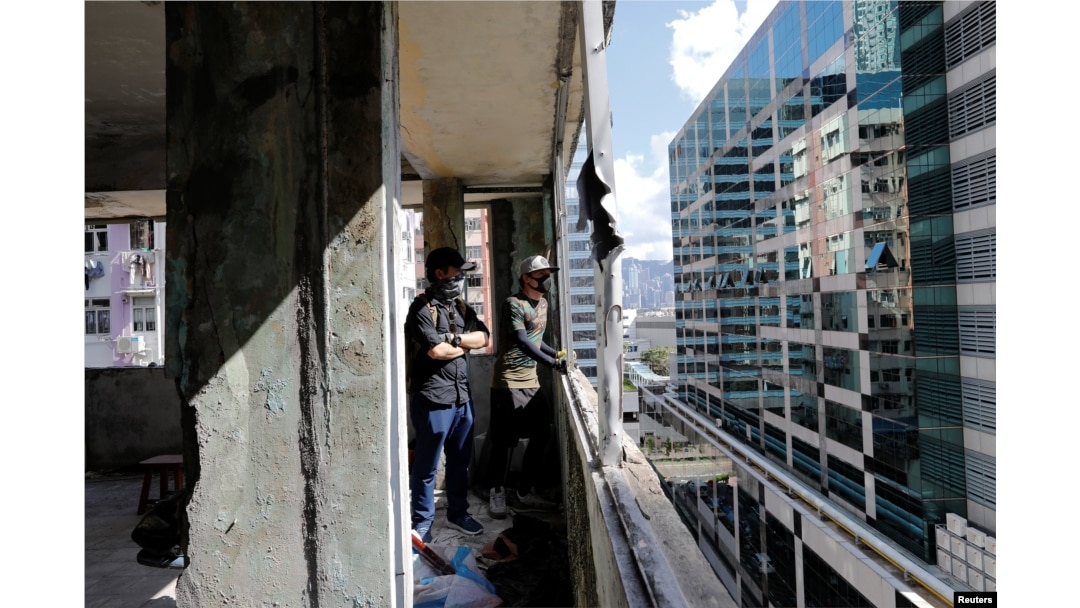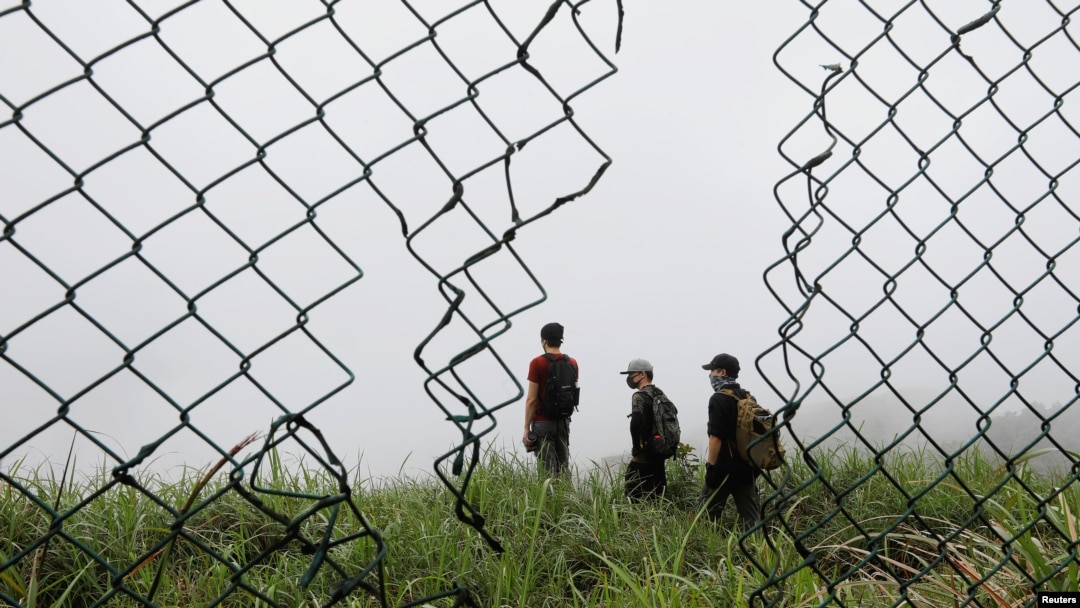Atop Hong Kong's tallest peak blanketed in clouds, three masked urban explorers step back in time as they slip through a wire mesh fence and march toward an abandoned army barracks from the British colonial era.
Twenty years after Britain returned Hong Kong to Chinese rule, these young, alternative conservationists are eager to document the city's remaining historical buildings.
Some structures have been demolished over the decades to make room for development in one of the world's most expensive real estate markets.

A HK URBEX member looks at a newspaper from 1982 inside an abandoned residential building in Hong Kong, China, June 7, 2017.
Protests in 2007 against the tearing down of Victoria Harbor's Queen's Pier, which for almost half a century marked the ceremonial arrivals of British governors and royals including Queen Elizabeth, is often cited as a starting point for street activism bent on preserving Hong Kong's culture.
For the young explorers in the group HK URBEX, what started out as a hobby in 2013 has blossomed into a mission to assemble an archive of the city's colonial-era architecture.
The eight members spend weeks and even months researching derelict sites before visiting and documenting them through photos and film that are posted on their social media page.
They have recorded more than 50 sites in Hong Kong alone.
Short videos show the members shining their flashlights on the prison gates of a colonial political prison, a pile of dusty movie reels and posters in an empty movie studio, or the walls of a former World War II air raid tunnel.

HK URBEX members inspect an abandoned residential building in Hong Kong, China, June 7, 2017.
"I just fear that in maybe 20 years' time, there won't be a lot of unique Hong Kong heritage or architecture that really shows that we are Hong Kong, because there's no other place like us," said one of the group's co-founders, who declined to be identified because his activities could involve illegal trespassing. "And the government, of course, should be more active in preserving these places because in a way, it's also preserving our Hong Kong identity."
Currently 114 buildings and cultural landmarks are protected from development, and more than 1,000 buildings are assigned a historic grade by the government's Antiquities and Monuments Office.
The Commissioner for Heritage's Office said in a written response to Reuters that the government had launched the revitalization of 19 historic buildings since it first announced its policies on heritage conservation a decade ago.
"Conservation of historic buildings in Hong Kong has gone some way to the point which requires efforts beyond the government," it added.


